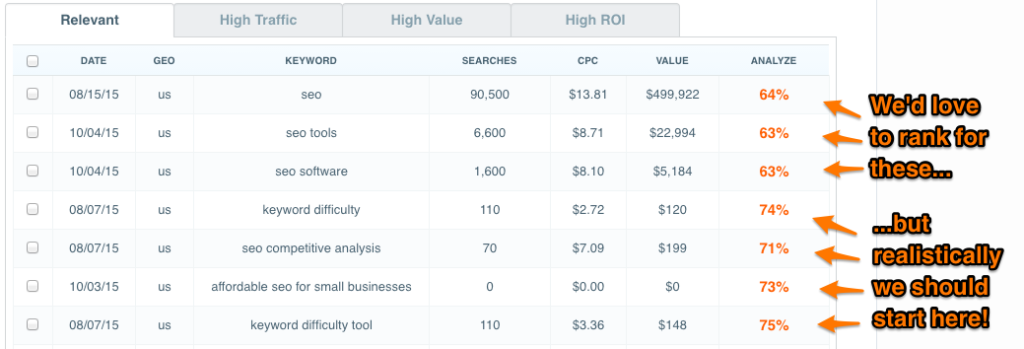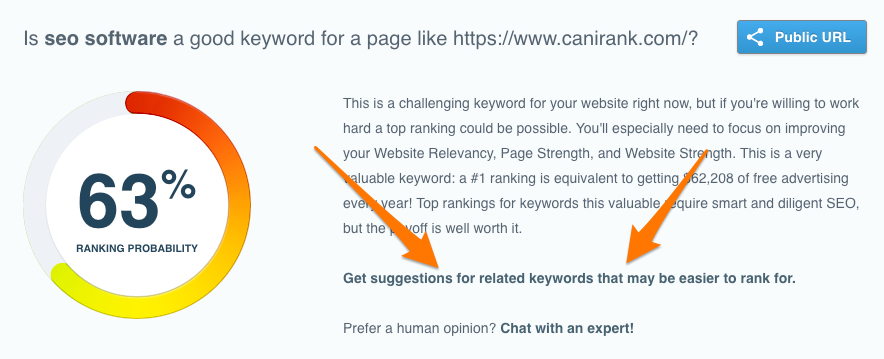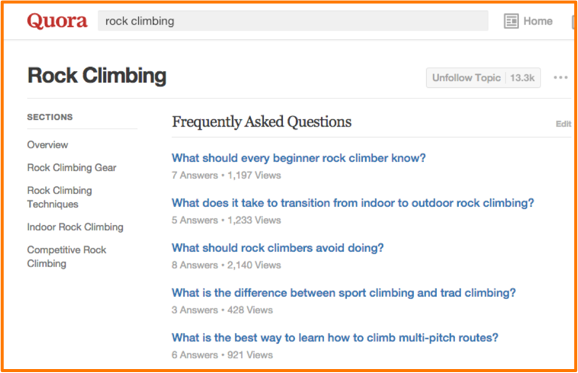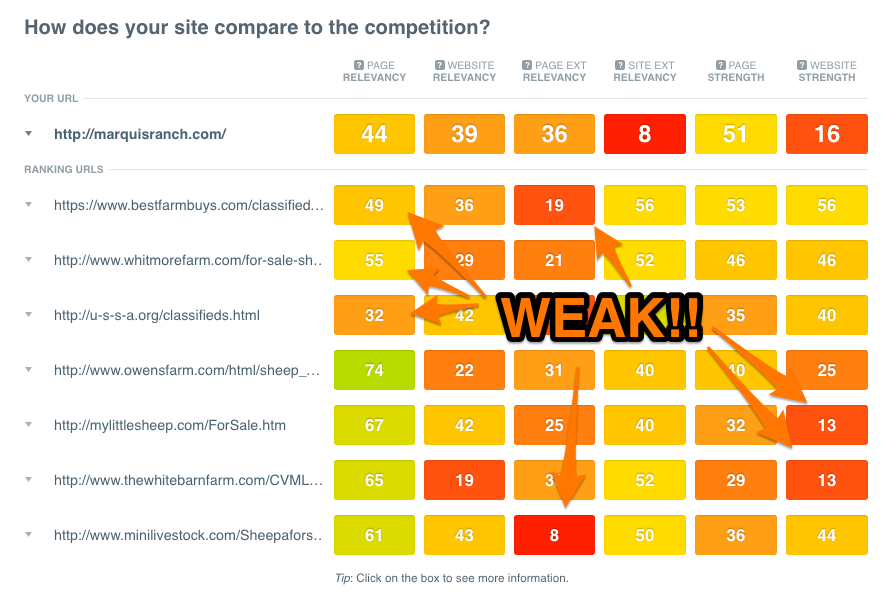SEO for startups can be challenging. Search engine results heavily favor big brand websites with thousands of links, a recognizable brand name, and virtually unlimited budgets for fresh content. Faced with daunting odds and tepid initial results, many startups quickly give up on SEO as a viable channel to scale your marketing.
That’s a huge mistake.
Applied correctly, search engine optimization can be one of the best channels for growth phase startups to achieve traction at a reasonable cost. Unlike other channels where traffic scales in proportion to budget, in SEO, brains and creativity matter more than budget. Numerous startup success stories such as Mint, Quora, Buffer, HubSpot, Unbounce, OkCupid, Groove, TripAdvisor, or Yelp wouldn’t be half the company they are today without their startup SEO strategies.
So we know that mastering SEO can skyrocket your startup’s traffic.
Plus, there’s good news: in the past few years, SEO has become a lot harder.
(Yep, that’s good news.)
It’s good news because Startup SEO is a zero-sum game. The more challenging it becomes, the more opportunities there are for you and I and anyone else willing to put in the work, find the best strategies, and do it right. And right now most companies both large and small are actually pretty terrible at SEO. Some companies have even switched to relying on PPC vs. SEO, making the game less competitive. Some ignore SEO while convincing themselves that’s OK because they’re “building for users, not search engines”. (You need to do both.) Others haven’t caught up to the reality of modern SEO in a post-Panda/ Penguin/ Hummingbird world. But most are just frustrated with the loads of conflicting and often self-serving advice from SEO gurus and just don’t know where to start.
In this post, we’ll share 5 specific SEO strategies that you can put to use right now to better leverage SEO as a traction channel for your startup, regardless of your size, budget, or industry. Here are the best SEO for small business tactics.
Startup SEO Strategy #1: Start In a Small Pond

CanIRank is best described as “SEO software“, an “SEO tool”, or perhaps a “keyword research tool.” But we know that if we tried to compete for those keywords as a young Search engine startup site going up against much more established players, we wouldn’t have a chance. As one of many SEO tools for startups, the CanIRank Keyword Report shows us that the typical website ranking for “SEO software” has several hundred thousand links and very high Website Strength:
That kind of trust and authority isn’t built overnight even with the best SEO strategy and truckloads of VC cash. And it definitely requires more than a cursory look at the data found in your Google Search Console.
So instead of wasting our SEO startup’s resources by trying to fight a battle we can’t win, we applied SEO for Startups Strategy #1: start in a small pond. More specifically, break down your overall market into smaller chunks and choose one to focus your SEO efforts on initially. Checking your keyword difficulty doesn’t have to be complex.

As a startup, you need to start by targeting low competition keywords even if they’re not the ones that best describe your business.
For CanIRank, we chose to focus on the “keyword difficulty” segment of the market. This was a great fit for us because 1) our keyword difficulty feature is light years ahead of the competition, and 2) no larger players were trying to rank for “keyword difficulty” with their home page.
So did it work?
You can see the results for yourself.
CanIRank still doesn’t have very many links, but by focusing on a single market niche rather than the overall market terms like “SEO”, “SEO software”, “SEO tools” and so on, we’ve managed to get our SEO startup on page 1 in a relatively short period of time.
Now that we’re on page 1 for keyword difficulty, we’ll slowly start to expand our territory. Our next move is to begin targeting an adjacent market niche such as “SEO competitor analysis“. Once we’re ranking for that we’ll move to another adjacent niche like “keyword research tools” or “small business SEO software”. By the time we’re big enough to go after terms like “SEO software”, we’ll have already established a stable of traffic-generating keyword rankings in a number of niches, and our competitors won’t know what hit them.
SEO for Startups Strategy #2: Be a Barnacle

Every week there are literally hundreds of new articles and blog posts published talking about our competitors. And unfortunately for us, most of the bloggers and journalists doing the writing haven’t yet heard of CanIRank.
Eventually, we hope to be featured in those articles. But in the meantime, we have to settle for being a barnacle. Just as barnacles attach themselves to whales for a free ride through the ocean, startups can try to attach themselves to the press coverage of their larger competitors. This is a version of the commonly known piggyback marketing technique.
Every time a quality blog post or news article comes out mentioning SEO tools for startups or our competitors, we’ll look for a way to get involved. Maybe we’ll make an insightful comment, connect with the blogger on Twitter, or send the journalist a note with some additional research they could use in future articles on how to manage SEO.
In the short term, many people researching your industry who stumble across one of those articles will notice your comments and check you out as well. In the long term, the bloggers, journalists and other influencers who write about your industry will become aware of your startup and start including you in their write-ups.
Sound too time-consuming?
We thought so too! So we built our new Promote my Content tool to automate the process of monitoring and evaluating mentions of your keywords or competitors:

Using the Promote my Content tool to find bloggers who wrote about keyword domain names so we can promote our new research.
Each blog post or news article discovered is scored according to authority, relevancy, and actionability so that you can focus on the ones most likely to drive traffic and boost your SEO. Think of it as networking transferred to the digital realm: your goal is to contribute, share, and interact so people want to do business with you, not be obnoxious and overly salesy so they hope they’ll never meet you again.
Still sounds too time-consuming?
You might want to check out one of CanIRank’s Full-Service plans. Our team of digital marketing specialists is available to help at rates within reach of even the scrappiest bootstrapper, and this is one of the strategies we implement for most of our search startup clients.
SEO for Startups Strategy #3: Benevolent Gods

The Promote my Content tool can also be used to find the most important influencers in your industry: the ones who frequently link to your competitors and share their content. Instead of pitching them a cold ham sandwich, use the Influencer Relationship Building process to warm them up a little bit. Make them aware of you and your growing startup:
- Follow them on social media
- Make helpful comments
- Share and link to their stuff
Second, get them liking your company:
- Feature them as an expert
- Mention them in press interviews or guest posts you land at more important sites
- Send them helpful updates to their content, a free infographic, link corrections, bug reports, etc.
Building relationships takes time, which is why you need to start working on it right now.
Once you’ve built a relationship with someone you’ll naturally start to collaborate in ways that can be mutually beneficial.
One Way To Find Influencers: Use CanIRank’s Promote My Content Tool
- In the “Promote My Content” tool, select the content you want to promote and the strategy you’d like to use to find promotional opportunities. In this example, I’m using a CanIRank study comparing different keyword difficulty metrics, and the “Bloggers” strategy to find the most influential bloggers who write about keyword difficulty.

- After a minute or two, you will have a list of potential opportunities, scored on the relevancy to your content and keyword, the authority of the page and website, and the actionability, which scores how difficult it is to get a link on that website.

- My first move would be to follow these folks on Twitter and then start to read some of their posts. If any of the posts strike me as particularly insightful I’ll leave a comment and let the author know. A genuinely appreciative comment on someone’s work is a great way to start a relationship for your growing startup.
Startup SEO Strategy #4: Cheerleaders

Another great use for the new Promote my Content tool is finding forums or active communities in your niche. These forums don’t have to be huge, just someplace with a cozy feel where you fit in. Interact, help people, build real relationships, go to meetups or conferences, and meet the people in person. Only then start talking about your business, find some who are interested and make them feel like they’re part of the team, get their feedback, ask them about some SEO steps, techniques and search startup strategies that worked for them, give them early access to beta features, give them free subscription, implement their suggestions, share how business is going and your hopes and fears.
You will be surprised at how quickly networking creates opportunities but it won’t show any results until you put yourself out there. Start today.
The Promote my Content tool can also provide you with a list of potential online communities that you can start to engage with and use to find other real-life meetups.
Startup SEO Strategy #5: Katamari SEO

You’ve probably heard of the long tail approach to SEO before. Well, for startups and anyone with a new, less-established website, you may need to start with the long, long, looooooong tail.
Don’t even worry about estimated search volume and other aspects of keyword research at first. If you can find a topic that people are looking for information on that is not being well addressed by other websites (what we refer to as a “Content Gap“), then go for it!
It may only receive a trickle of traffic, but it establishes a beachhead for your search presence and gives search engines some behavioral data on your website. With luck, 1 or 2 people in that trickle of traffic may link to your content or share it on social media (after all, you’re the only one who’s addressed this topic well, right?), and then your site will become just a bit more authoritative.
Next time around, as part of your SEO business plan, you’ll be able to target a keyword that’s a bit more competitive and the trickle of traffic will become a stream. Keep that virtuous cycle going and eventually, your website will be the SEO powerhouse dominating the rankings in your niche, and ranking automatically for every keyword you happen to mention once in a blog post somewhere.
This is called the Katamari approach since it’s basically the website equivalent of the popular game where you begin with a small sticky ball and slowly roll up larger and larger objects until you’re the size of Mt. Everest and can roll up entire cities:
It has the distinction of having been invented by no less an SEO luminary than Google’s Matt Cutts, so you can rest assured it’s a Google-approved SEO strategy.
Success with Katamari SEO or any long-tail strategy relies upon 3 things:
- Picking a keyword that’s easy enough to rank for
- Picking a keyword that’s easy enough to rank for
- Picking a keyword for which you can easily rank
A good first stop in your quest for the ideal long-tail keyword is sites like Quora and Yahoo! Answers, where you can quickly see what kinds of questions people in your niche have.
You can also try using UberSuggest.org to determine what people are typing into the search engines. Google’s official keyword tool, the Google Ads Keyword Planner, is less useful for long-tail keyword ideas because it tends to limit you to the same subset of keywords everybody else is already chasing.
Last but certainly not least, CanIRank’s Grow My Content tool will generate hundreds of keyword ideas for you, and then score them according to relevancy, traffic value, and ranking difficulty, even giving you step-by-step instructions for how to do your own startup SEO.
Process for finding Long Tail Keywords: “Drill Down Technique”
- Start with a keyword you’re interested in and analyze it to get your Ranking Probability score.
- If your site has a Ranking Probability of 75% or better, you’re done! Post on that keyword.
- If not, click on “Find easier related keyword ideas” to drill down into alternatives that are more specific than your earlier keyword, and analyze those.

- Go back to step 2 and repeat until you find a keyword that you can rank for.
When using the Drill Down Technique you want to find keywords where other ranking sites have Website Strength and Page Strength scores as low as yours, and/or where nobody has a good Page Relevancy score (meaning that none of them are doing a very good job targeting that keyword right now).
Here’s an example of what the competitive analysis table for a nice easy keyword will look like:
Now Get Started on Your SEO For Startups Strategy
We know how it goes running a startup. You’re short on resources and the clock is ticking. DIY search engine optimization can be an effective, low-cost way to grow your company as long as you can execute reasonably well. Try any of these best search startup strategies to make sure you get started on the right foot! To keep you motivated, check out some startup SEO case studies from some of the now top companies in their fields and for more advice, check out our article on SEO based on the lean startup methodology.
Tomorrow you will wish you had started today!
[slideshare id=65562539&doc=seoforstartups-howtousebrainsoverbudget-160831183850]






This is what a start up wants to learn. But most of the blogs are filled with the same seo strategies such as link building, guest posting………
Really great tips.
I am now a member at canirank.
Thank you for your article! Furthermore, another great technique to help your startup company get publicity and consolidate in the worldwide web is to submit in startup submission companies.
For this purpose we have attempted to create a catalogue with such places to submit your #startup!This is NOT an auto-submitter tool! Instead it is meant to be a place-to-go for listing all possible “submit your startup” websites.
http://mystartuptool.com/
Thanks for the resource Evangelia. I’ve seen this before and it’s very comprehensive. Well done.
Hi John,
The Article is very informative and helpful for all SEO`s
I got to know about canirank from Brian Dean.I love you guys software. Nice post by the way. The cost of advertising your website can be so high but SEO is a good and cheap way to get the desired results you need.
I can’t see canirank.com ranking for “keyword difficulty” on page 1 of the SERPS.
Hey Robert, that’s actually a good example of how “Katamari SEO” works: since this post was written CanIRank has grown in authority, so we “leveled-up” by shfiting our targeting towards more valuable (but also more competitive) keywords such as “SEO for startups”, “SaaS SEO”, “SEO software”, and a bunch of others. We didn’t abandon “keyword difficulty” completely, but it’s now being targeted with a lower level page that doesn’t yet have the authority to make it to page 1 (I think it’s on page 2 or 3 at the moment).
Glad to read this. Loved reading it.
Awesome post. These factors will help to increase SEO ranking and get more organic traffic to website. SEO is getting very much complex day by day. But If we work smartly and follow the Google guidelines, it will bring the best results for us. Thanks for putting top-notch content on your site. Looking forward to coming back for more informative articles.
Very great post! You hit the most important elements. Nice work!
All in all points that I do know, but it is nice to have a look at them. Thank you!
I know SEO is a long-term strategy, but people should get a head start right away or else it will take that much longer to get loved by Google.
One thing that I recommend every site to start off with is simple keyword research.
By going after keywords that aren’t competitive and have a higher cost per click, you’ll find that you can generate search traffic at a much faster pace and these keywords will drive sales. As keywords with a high cost per click tend to mean that they convert.
Awesome post and tips, thanks for sharing.
Pretty awesome guide for startups in L.A, thanks for writing!
Scrapyl is another great tool for keywords.
I have been using it for almost a year and I have found tons of great keyword suggestions.
You make it sound easy like ABC – create content, do technical SEO, build backlinks and you’re all good. In reality it all takes hell a lot of time. Not complaining here, I’m just 6 months into SEO and it’s not that easy.
You’re right, SEO takes time. Especially done well, that being said it can have tremendous results.
“Katamari SEO”, This was a new one. Very helpful. Thanks.